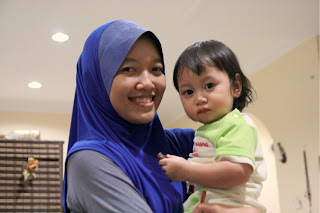
The developed countries became an ageing population many many years ago. Malaysia like any other countries are in the pipeline towards achieving this status of an ‘ageing population’. According to World Health Organisation (WHO), a country is said to be an ageing population when at least 7 percent of its population belongs to the group 65 years old and above. For Malaysia, the year 2020 is definitely the time. That was one of the reason ‘vision 2020’ was coined as the time Malaysia will be a developed country.
The developed countries became an ageing population many many years ago. Malaysia like any other countries are in the pipeline towards achieving this status of an ‘ageing population’. According to World Health Organisation (WHO), a country is said to be an ageing population when at least 7 percent of its population belongs to the 65 years old and above. For Malaysia, the year 2020 is definitely the time. That was one of the reason ‘vision 2020’ was coined as the time Malaysia will be a developed country.

The scenario given above made us live in a maze, do not know where we started and do not know where to go out. Of course there is always a way to solve our problem. Always come back to basic and ask ourselves what is our priority in life.
One issue I want to highlight here is ‘intergenerational gap’. Is the intergeneration gap bigger or smaller? In terms of years /time gap, yes it is - because life expectancy is longer, so we can have a gap of between 90 and 15 years old. But in reality the integenerational gap is smaller in the sense that those who are in the 20’s are so much different in many aspects compared to those in the late teens. Even among the adolescents or youngsters themselves, they differ. What can we expect when we compare a 14 years old and an 80 years old.

For parents who are now in the early 50s for example, our thoughts and world view is so much different from our children and if we cannot overcome the repelling energy, we will be very frustrated and every generation will continue living in their own planet. Even the music that we listen to is different – being in a car with them fighting for the different radio frequencies is already very daunting. Our ears cannot stand Lady Gaga’s and theirs cannot tolerate traditional songs.
Can we say that the values and sensitivity of the younger generation towards elderly is declining? Especially those living in metropolitan cities? But can we still claim that the elderly in rural areas are being cared for / are not neglected? This intergenerational gap need to be addressed in order to ensure the dignity of the elderly population.
Generation gap is inevitable because of the rapid changing of the society. But we must come to term with what we can and cannot do about it. People on both sides of the bridge must NOT close their mind towards each other, try to explore about your counterpart and you may find something interesting for both of you, the younger generation must always remember that they will soon be in the generation of being left behind and the older must share their previous experience with the younger ones AND more importantly we must do more talking / interaction AND avoid being controlled by cellphones, televisions, i-pad etc.

